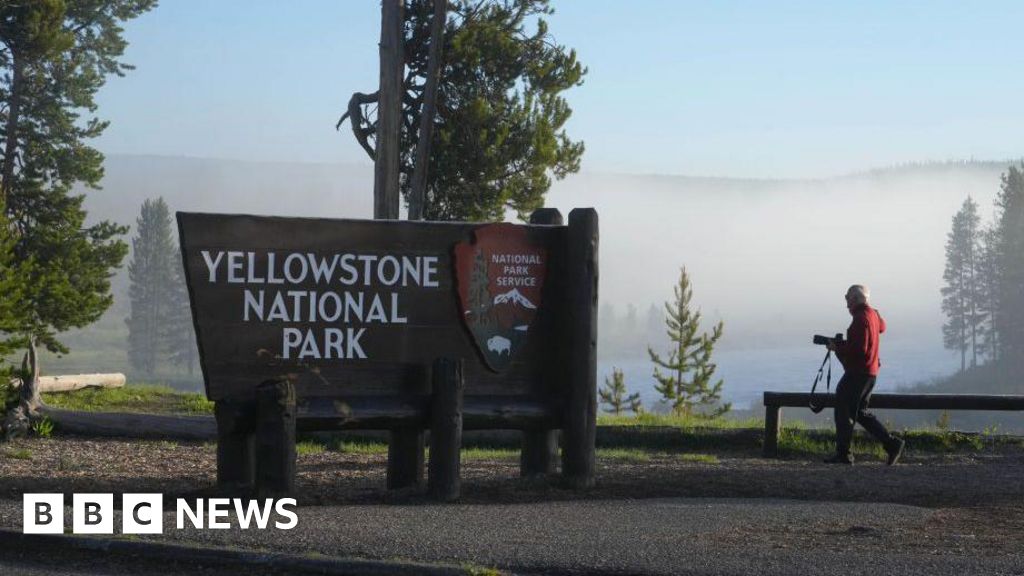ARTICLE AD BOX
Police in Hong Kong have arrested the father and brother of US-based pro-democracy activist Anna Kwok for allegedly helping with her finances, according to media reports.
It is the first time the relatives of an "absconder" have been charged under the territory's security law, Reuters news agency said.
The authorities accused Ms Kwok, 26, of breaching Hong Kong's national security laws after participating in pro-democracy protests in 2019.
She fled the territory in 2020 and now serves as the Executive Director of the Hong Kong Democracy Council (HKDC), an organisation based in Washington DC.
Police said they had arrested two men aged 35 and 68 on suspicion of handling "funds or other financial assets" belonging to Kwok, Reuters said.
Local media later identified the two men as relatives of Ms Kwok, citing police sources.
According to a report by the South China Morning Post (SCMP), police launched an investigation into the pair after observing they had met Ms Kwok overseas.
The 68-year-old, identified by local media as Ms Kwok's father Kwok Yin-sang, is accused of helping his daughter handle her insurance policy upon his return to Hong Kong.
According to a charge sheet seen by Reuters, Kwok Yin-sang had been trying to access Ms Kwok's life and personal accident insurance policy which could be used to obtain funds on her behalf.
He has been denied bail by national security judge Victor So at the West Kowloon Magistrates' Courts, Reuters reported.
The 35-year-old man, identified by local media as Ms Kwok's brother, is accused of supporting their father's attempts to retrieve the money, Reuters said.
He has reportedly been released on bail pending further investigation.
In 2023, Hong Kong placed a bounty on the heads of several pro-democracy activists - including Ms Kwok - who had fled the territory.
The eight activists targeted were accused of colluding with foreign forces - a crime that can carry a sentence of life in prison.
At the time, Ms Kwok said the bounty was aimed at intimidating her and her fellow activists.
"That's exactly the kind of thing the Hong Kong government and the Chinese Communist party would do - which is to intimidate people into not doing anything, silencing them," she told BBC's Newshour at the time.
The former British colony became a special administrative region of China in 1997, when Britain's 99-year lease of the New Territories, north of Hong Kong island, expired.
Hong Kong still enjoys freedoms not seen in mainland China, but they are widely thought to be on the decline.

 11 hours ago
8
11 hours ago
8








 English (US) ·
English (US) ·